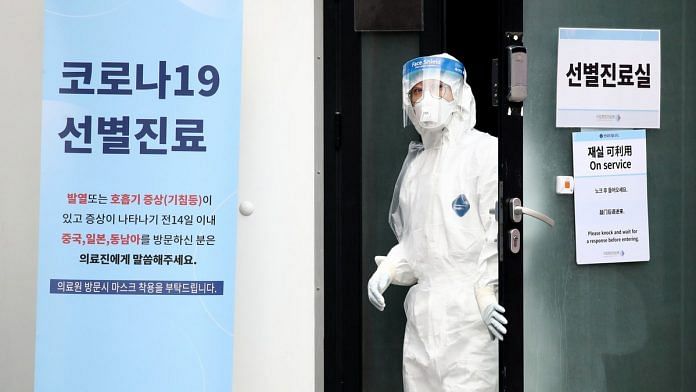New Delhi: Even as some countries, including India, have reported flattening the curve, the number of coronavirus infections and deaths across the world continue to climb.
Scientists across the globe are working on developing solutions for different aspects of the Covid-19 illness.
Here are some of the latest developments on the Covid-19 front.
Device removing CO2 from blood could aid Covid-19 patients
Scientists have created a minimally-invasive device that does the work of the lungs by removing carbon dioxide directly from blood, much as a dialysis machine does the work of the kidneys.
The device, designed at the University of Pittsburgh, could help improve outcomes for Covid-19 patients when used in conjunction with mechanical ventilation.
Many intensive care units are now considering mechanical ventilation as a last resort because of the complications and side effects associated with the process, the researchers said.
The new device, which has received Emergency Use Authorisation (EUA) from the US Food and Drug Administration, could help improve chances for patients.
Also read: China calls it ‘unfair and irresponsible’ to label as faulty Covid test kits it sent to India
Loss of smell linked to lower hospitalisation risk
The loss of smell and taste in Covid-19 patients can be an early indicator that they are less likely to suffer from very severe symptoms or require hospitalisation, a study suggests.
Researchers from the University of California San Diego had earlier shown that olfactory impairment can be an early indicator of the disease.
In the new study, published in the International Forum of Allergy & Rhinology, the team suggests that this impairment is an early indicator that could help health care providers determine which patients will require hospitalisation.
The study looked at data from 169 patients who tested positive for Covid-19 between 3 March and 8 April.
The team found that patients who were hospitalised for Covid-19 treatment were less likely to report loss of smell (26.9 per cent compared to 66.7 per cent). Similar percentages were found for loss of taste.
Why heart disease patients suffer more with Covid-19
Scientists have identified why people with certain heart ailments are more susceptible to worse outcomes with Covid-19.
Researchers from the Mayo Clinic have found that in patients with one specific type of illness — obstructive hypertrophic cardiomyopathy (HCM) — the heart increases production of ACE2 protein.
The SARS-CoV-2 hijacks these ACE2 receptors on the membrane of cells and uses them to get inside the cells.
Normally, this pathological response at the cellular level might be the heart’s attempt at compensating for changes caused by the disease.
However, the virus not only gains entry through ACE2 but also takes this protein with it, removing a protective signaling pathway that normally counters the negative impact of the hormone angiotensin II — which increases blood pressure.
Researchers analysed frozen samples of heart muscle tissue from 106 patients who had surgery for obstructive hypertrophic cardiomyopathy. The control group used heart tissue from 39 healthy donor hearts.
Basic needs of poor should be prioritised during social isolation
Government-enforced social isolation may help relatively affluent populations limit the spread of Covid-19, but the measures can prove devastating for people dwelling in urban slums, said a new report.
Authored by a team of public health experts and epidemiologists working in collaboration with community leaders and non-governmental organisations (NGOs) from urban slums around the world, the report gives urgent recommendations for reducing the impact of Covid-19 on people living in poverty.
The researchers have argued that governments should prioritise providing basic needs, including fresh water, sanitation and a moratorium on evictions.
For the nearly 1 billion people around the globe currently dwelling in urban slums, physical space is scarce. They many rely on daily wage labour for survival, the report points out.
Also read: Sunday edition of Boston Globe falls short of pages for death notices



